Students and faculty reflect on their International Course Module experiences.
Reading week isn’t just a chance to head south or binge on Netflix — it’s an opportunity to learn while travelling abroad.
From studying health concerns in Greece to African philosophy and political systems in Rwanda, nearly 80 undergraduate students from the Faculty of Arts & Science made the most of their time away from U of T to put their classwork to use abroad.
Opportunities like these exist through the Faculty of Arts & Science’s International/Indigenous Course Module (ICM) program, where students develop practical experience on topics covered in their courses.
Last month, groups travelled to:
- Ecuador
- England
- Greece
- Iceland
- Indonesia
- Rwanda
- The USA
We asked some of the students and faculty members about their experiences. Here’s what they said.
What was your favourite part of the trip?
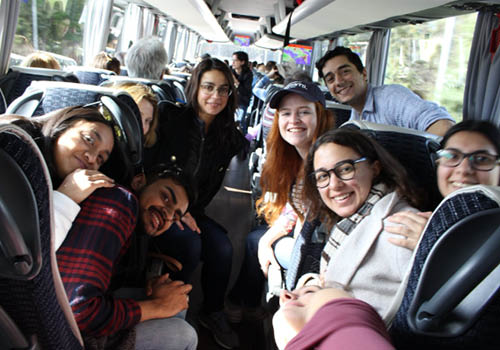
“Hands down, my favourite part of the trip was getting to bond with nine other classmates.
We had the chance to share our ideas, engage in critical discussions, and even challenge each other’s viewpoints on global health issues. This not only helped us increase our awareness but also allowed us to build character.”
— Evani Patel, a third-year student at University College doing a double major in Global Health and Biology
What do you think you’ll take away from this experience?
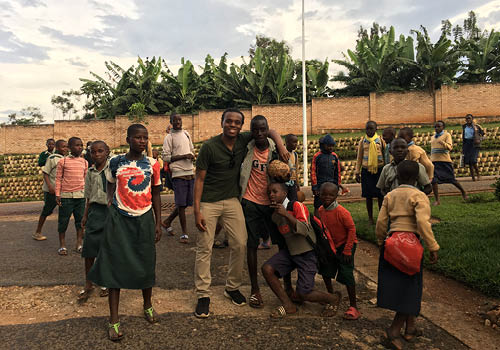
“One of the main themes we learned in class was the spirit of ‘ubumuntu,’ which means showing goodness, generosity and kindness to one another. We experienced this firsthand from the locals in Rwanda. They were extremely kind, humble and focused on progressing together as a country — not just every person for themselves. My experience there changed my perspective on how people should act towards one another.”
— Jonathan Rose, a third-year student at Victoria College doing a double major in African Studies and History
How did the trip compare to what you’ve been learning in the classroom?
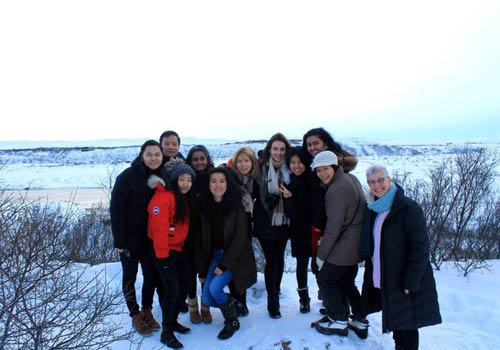
“This class taught me the importance of getting real-world experience — no matter your chosen field. Working and interacting with human resources professionals in Iceland helped me understand the role culture plays within an organization. It was especially interesting to see the significance that Icelandic people place on work-life balance. Many organizations have facilities like a pool table or a music studio to keep their employees happy!”
— Keshini Mahesan, a fourth-year student at Trinity College doing a double major in International Relations and Employment Relations
Would you recommend this experience to other students?
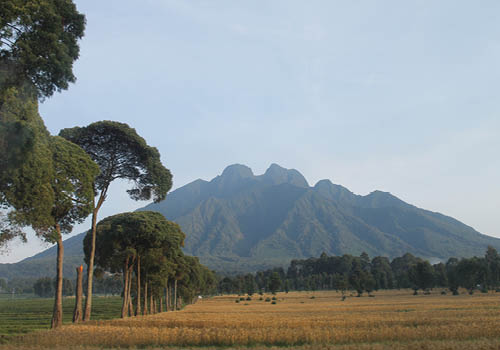
“Is there a stronger word than yes? Absolutely I would, without hesitation. The ICM is a tailored, meticulously curated experience that matches what you write and hear about in the classroom to people and activities that embody those concepts. It’s an opportunity to develop relationships with your colleagues, travel in a way that enriches your academic career, and at the most facile level, it’s a trip that you might not have otherwise been able to take.”
— Emily Flikas, a fourth-year student at Victoria College doing a double major in Political Science and African Studies
What do you hope your students took away from this experience?
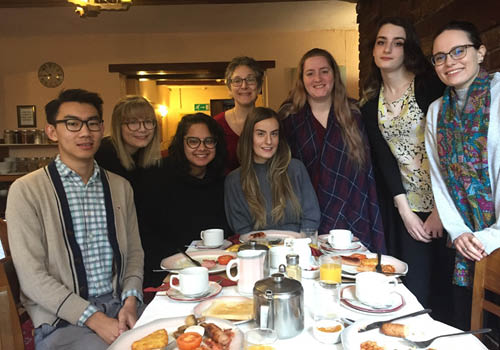
“I’m a strong advocate of ‘learning by doing’ as part of intellectual training. I hope the students came back from their ICM with a life-changing experience under their belts. The thing about academic learning is that it is static and bookish. Being in the field (i.e., the real world) doing research that may eventually lead to intellectually interesting findings is another thing entirely. Taking students to the field and doing a project also keeps me engaged with my own research. I re-live the excitement through their eyes. It helps me remember how precious, important and exciting it is.”
— Sali Tagliamonte, professor, Department of Linguistics
How did the trip compare to what you’ve been teaching in the classroom?
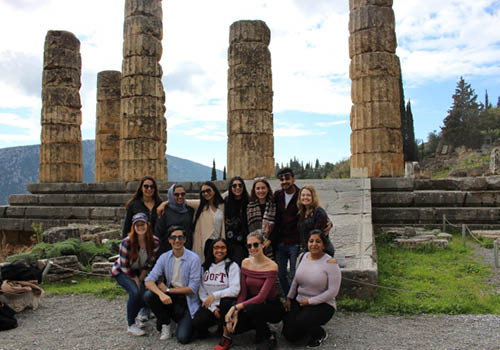
“The students observed how academics work with community organizations and navigate the logistical challenges of doing fieldwork. They saw what works well and what doesn’t. In class, we read final papers with the results beautifully laid out. In Greece, we talked to organizations and learned what comes before that paper, such as finding funding when resources are scarce, partnering with other organizations given the resource constraints, picking priority areas to focus on, and how political factors and competing priorities can keep important work from being done. We witnessed the reality of the messy world of global health research — frustrating but rewarding at the same time.”
— Helen Dimaras, assistant professor, clinical public health, Dalla Lana School of Public Health. Dimaras co-led this ICM with Maria Papaconstantinou, associate professor, teaching stream, human biology.

